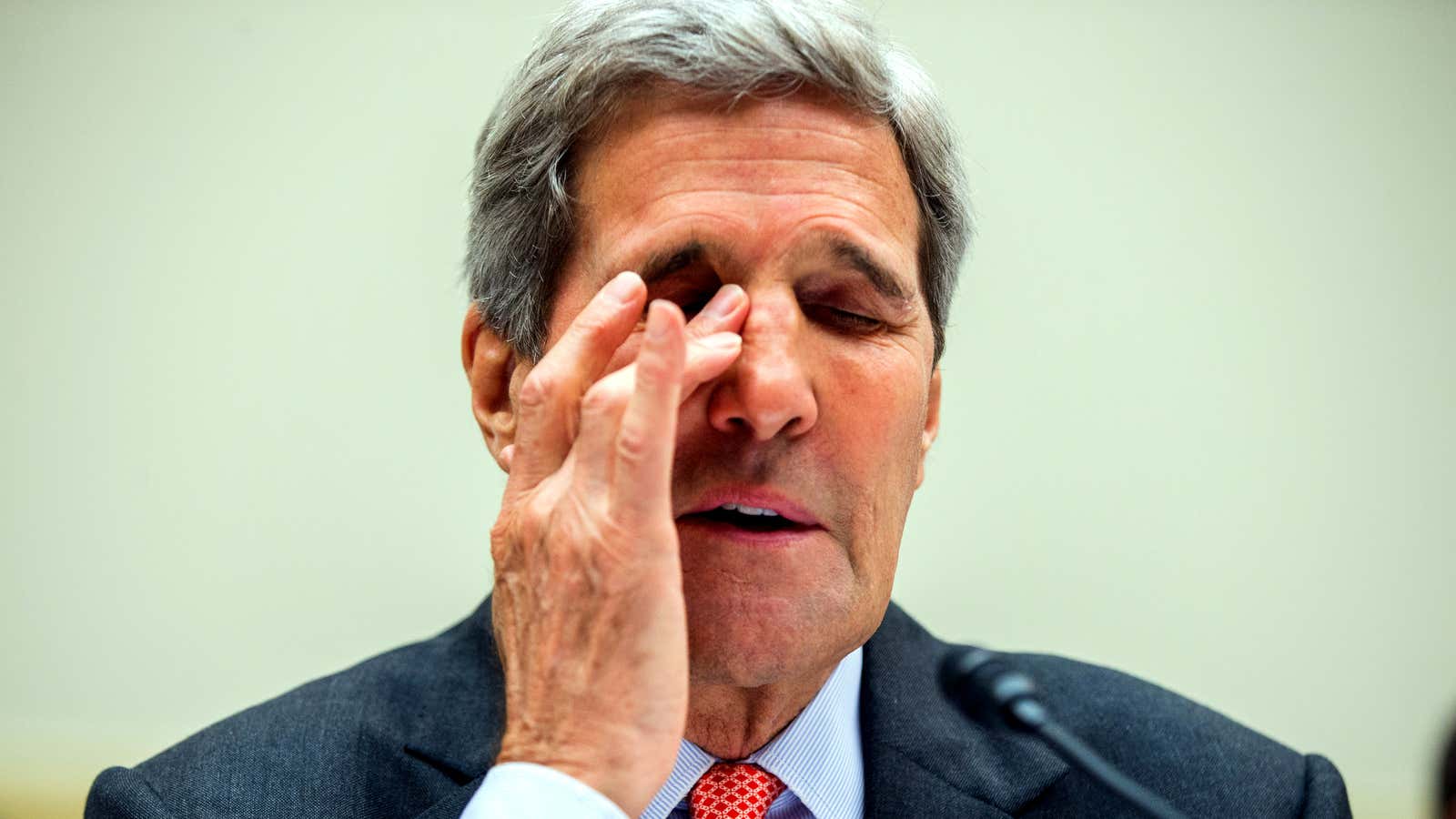Skeptics of a global deal to restrict Iran’s nuclear weapons program may be overestimating the United States’ economic clout, according to Secretary of State John Kerry.
The veteran diplomat appeared before an audience of reporters and finance types in New York City, making the case that Congress should ratify the treaty the US, Germany, France, Britain, Russia, and China struck with Iran. While the deal would forbid Iran from developing nuclear weapons technology and includes strong monitoring provisions, critics say it is not strong enough to defend the region—and particularly Israel—from the Middle Eastern power.
But Kerry says that diverging from those allies now to reject the deal will not result in an improved situation. While violation of the agreement by Iran will commit the participants to put sanctions back in place, walking away from the deal will give the US little leverage to restore the multi-lateral sanctions that cratered Iran’s economy. That’s particularly important because most of Iran’s important economic relationships aren’t with the US.
“A number of the organizations that are working that are opposed to this agreement, they are spreading the word, ‘America is strong enough, our banks are tough enough, we can just bring the hammer down and force our friends to do what we want to do,'” Kerry said. “There are a lot of business people in this room. Are you kidding me? The United States is going to start sanctioning our allies and their banks and their businesses because we walked away from a deal? And we are going to force them to do what we want them to do even though they agreed to the deal we came to?”
Rejecting the deal could have two detrimental impacts. First, it would make it more difficult to hold sanctions on Russia for its invasion of Ukraine, pressure that’s been far more costly for Europe than the US. Kerry described the European view of Russian sanctions as “already very dicey and ready to say, well, we have done our bit.”
Second, efforts to unilaterally impose US will on the international financial system, Kerry said, “is a recipe, very quickly, my friends, business people here, for the American dollar to cease to be the reserve currency of the world.”
And while that argument about the dollar may be slightly hyperbolic—and perhaps holding the reserve currency isn’t even such a benefit—the reality is that many countries are skeptical of the dollar’s continued role as the workhorse of global trade. Any undue complications from the US will spur existing efforts to find alternate currency solutions.
Kerry also offered his take on Iran’s point of view, noting that “if you don’t understand what the people you negotiate with are thinking, you can’t negotiate”:
I can’t tell you how distrusting and suspicious the Ayatollah is of the west. From their perspective, they look out and say, what the hell were you guys doing? You were supporting Saddam Hussein against us. We fought six years of war, we lost a million people, and you guys were giving him the weapons to do it. And when they gassed our citizens, you didn’t go to the UN the way you did with [Syrian President Bashar al-Assad]. … They argue very passionately, they say, look, a certain country has been assassinating our scientists. You and others have been invading us with technical means and trying to screw up our program. Notwithstanding all of these attacks on us, we have pursued our program, which we think is our right, we’re not outside the [Non-Proliferation Treaty], they’ve never left the NPT. When they have enough fissile material for 10 to 12 bombs, we don’t believe they’ve tried to go make that bomb.
Congress is expected to vote on the Iran deal in September. While the result is still in question, most observers are confident that even if the Republican-controlled Congress rejects the deal, there will be enough support for the nuclear agreement to sustain a presidential veto and enact it.
